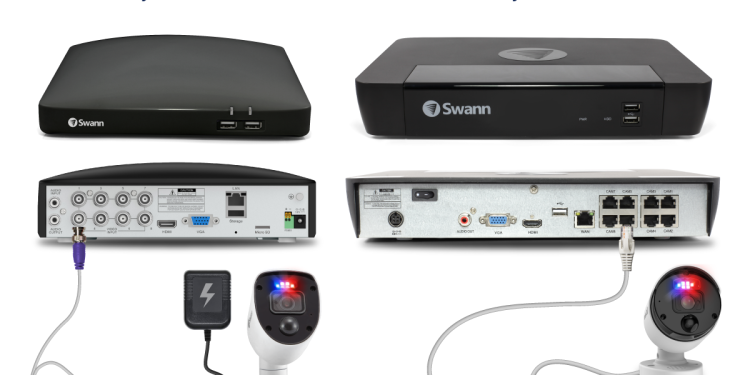In the realm of video surveillance, choosing between an NVR (Network Video Recorder) and a DVR (Digital Video Recorder) can be a critical decision for ensuring the safety and security of your premises. Both systems offer unique advantages and cater to different needs, making it essential to understand their differences thoroughly. For a more detailed comparison of NVR and DVR, you can visit this comprehensive guide on nvr vs dvr.
Table of Contents
Understanding the Basics
What is an NVR?
A Network Video Recorder (NVR) is a specialized computer system that records video footage directly from network-connected cameras. The video data is processed and encoded at the camera before being streamed to the NVR, which stores the footage. NVRs are typically used with IP cameras (Internet Protocol cameras), which offer higher resolution and more flexibility in camera placement.
What is a DVR?
A Digital Video Recorder (DVR), on the other hand, works with analog cameras. The DVR converts the analog signals into digital format, compresses them, and then stores them on a hard drive. DVR systems are generally easier to install and are often more cost-effective for smaller setups.
Key Differences Between NVR and DVR
Video Quality
One of the most significant differences between NVR and DVR systems is the quality of video they can produce. NVR systems usually support higher resolution IP cameras, which can offer up to 4K Ultra HD video quality. This results in crisper and more detailed images. In contrast, DVR systems are limited by the capabilities of analog cameras, which generally provide lower resolution images.
Installation and Configuration
NVR systems use Ethernet cables to connect IP cameras, which can power the cameras via Power over Ethernet (PoE), reducing the need for separate power supplies. This makes the installation process more streamlined. DVR systems, however, require separate coaxial cables and power sources for each camera, which can make installation more cumbersome and time-consuming.
Flexibility and Scalability
When it comes to flexibility and scalability, NVR systems have a clear advantage. They allow for easy addition of new cameras to the network without extensive rewiring. IP cameras can be positioned anywhere within the network’s range, making NVR systems ideal for larger or expanding setups. DVR systems are more restricted due to the need for direct connections via coaxial cables, which can limit the placement and number of cameras.
Cost Considerations
DVR systems are often less expensive initially, making them a popular choice for smaller businesses or home security. However, the cost of IP cameras for NVR systems has been decreasing, narrowing the price gap. While NVR systems may have a higher upfront cost, they offer better video quality and greater flexibility, which can be more cost-effective in the long run.
Advantages of NVR Systems
Higher Resolution and Image Quality
NVR systems can support high-definition cameras, providing superior image quality. This is crucial for applications where details matter, such as identifying faces or license plates.
Advanced Features
Many NVR systems come with advanced features such as motion detection, facial recognition, and remote viewing. These features can enhance the overall security system’s effectiveness and offer more comprehensive surveillance capabilities.
Simpler Installation with PoE
The use of Power over Ethernet (PoE) simplifies the installation process. A single Ethernet cable can transmit both power and data, reducing the complexity and cost of wiring.
Advantages of DVR Systems
Cost-Effective for Small Installations
For small installations, DVR systems can be a cost-effective solution. The initial investment is typically lower, and for basic surveillance needs, DVR systems provide sufficient functionality.
Ease of Use
DVR systems are generally straightforward to set up and use. They are often favored in situations where high-resolution video is not a critical requirement.
Reliable and Robust
DVR systems have been around for a longer time and are known for their reliability. They are less dependent on network conditions, which can sometimes affect the performance of NVR systems.
Making the Right Choice
Choosing between an NVR and a DVR system depends largely on your specific needs and budget. If you require high-resolution video, advanced features, and scalability, an NVR system is likely the better choice. However, if you are looking for a cost-effective and straightforward solution for a smaller setup, a DVR system might be sufficient.
In summary, both NVR and DVR systems have their unique benefits and are suited to different surveillance needs. Evaluating your specific requirements, the scale of your installation, and your budget will help you make an informed decision. For more detailed insights, you can visit this guide on nvr vs dvr.


